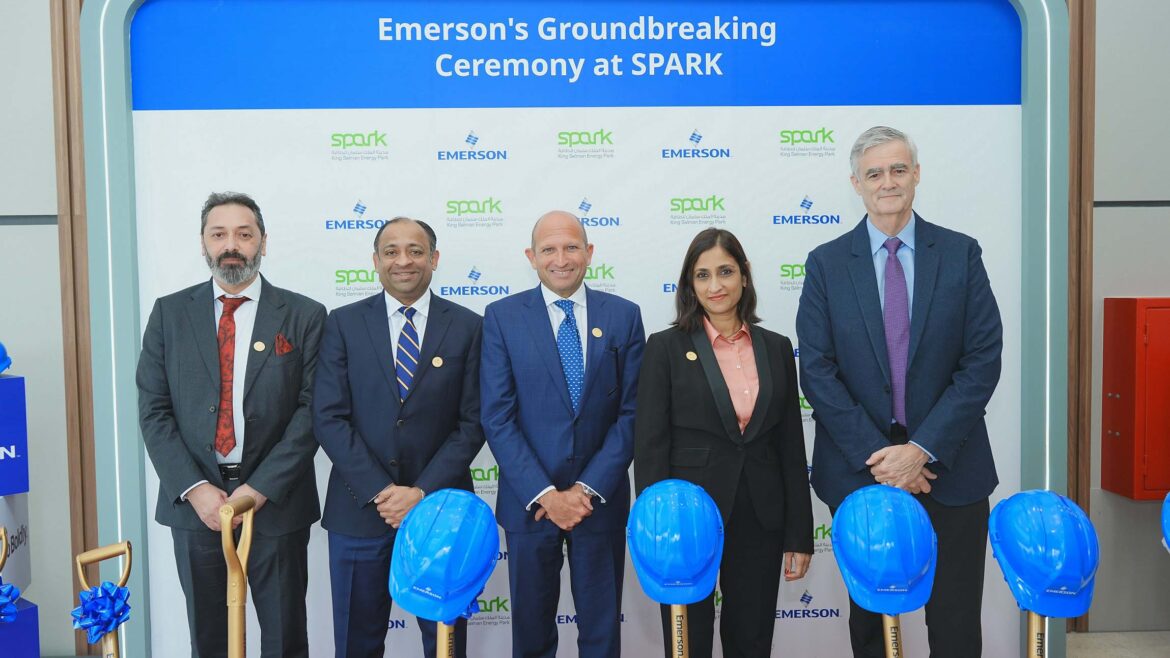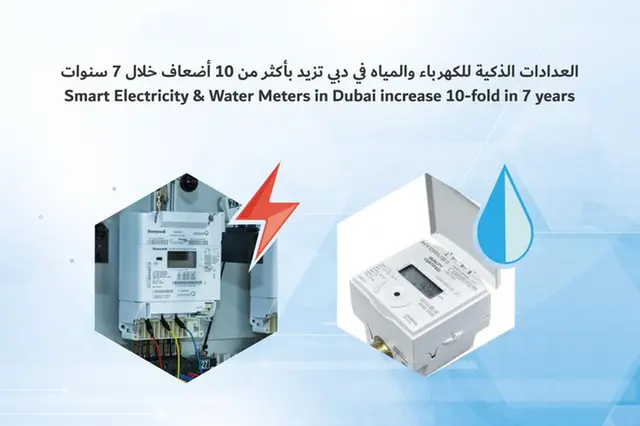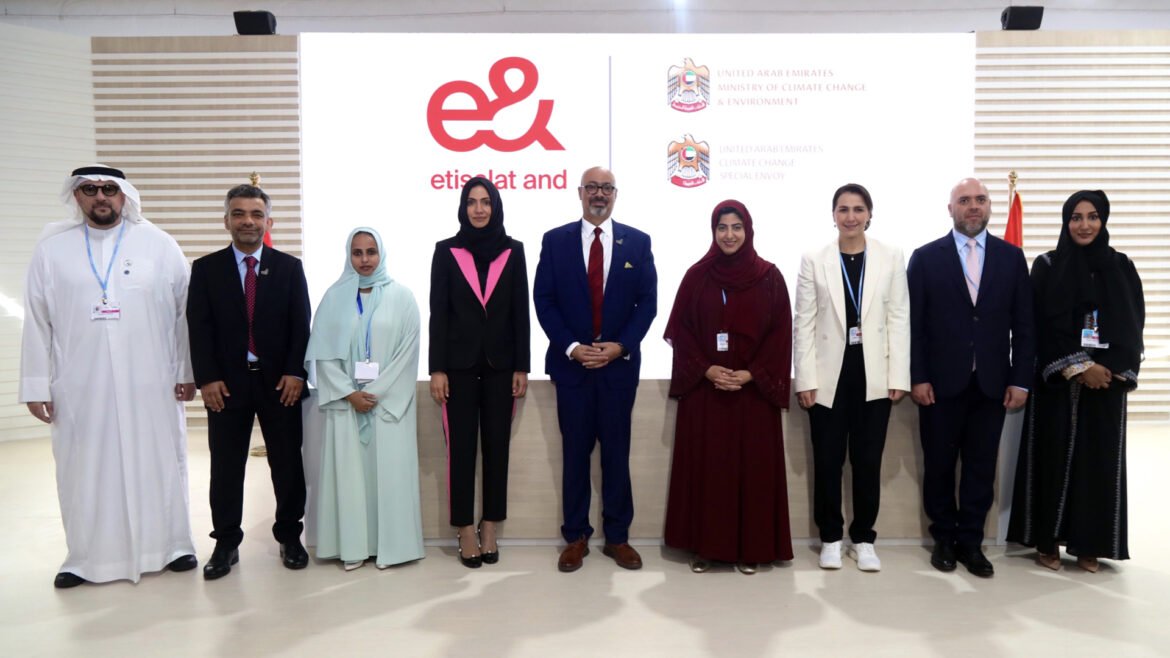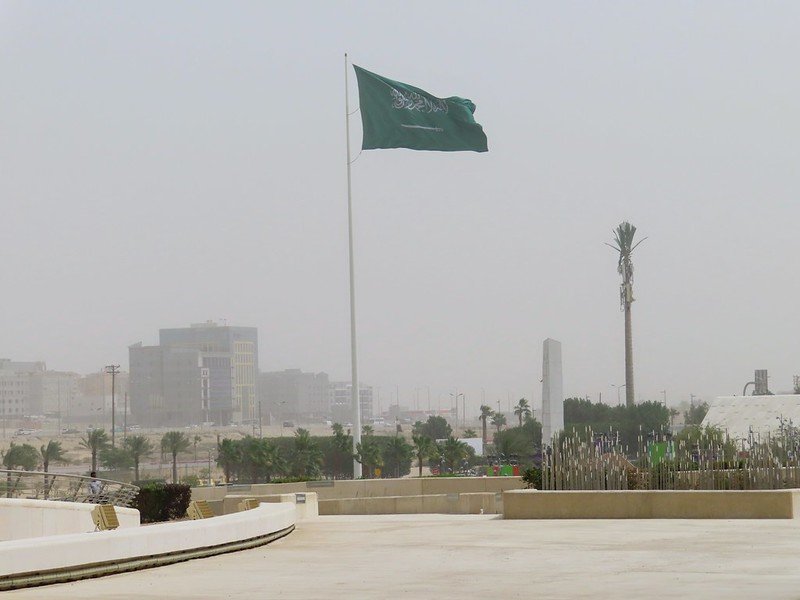European sustainability organisation Planetiers has announced it has signed a collaboration protocol with Dubai-based SDG Global to increase innovation and investment in sustainable projects between Portugal and the UAE. This new partnership comes on the back of the 15th annual Abu Dhabi Sustainability Week, which was attended by Planetiers CEO Sérgio Ribeiro. Headquartered in Portugal, Planetiers is a global movement inspiring organisations and individuals to play their part in shaping a sustainable future for all.
This agreement represents an important collaboration between the two organisations who will now work together on global initiatives in preparation for COP28, which takes place in Dubai from November 30 to December 12, 2023. Planetiers and SDG Global are committed to driving synergies that will unite these two major international ecosystems of governmental players, companies, innovators and investors. The goal of the two groups is to increase innovation and investment in sustainable projects, further advancing the journey towards achieving the balance needed for a greener, fairer and more inclusive economic transition.
In recent years, the UAE has been reinventing itself and investing significantly in solutions to tackle climate change. This has resulted in a considerable focus on water consumption efficiency, renewable energy production, agri-food production and in urban planning for greater resilience of cities and local communities.
Planetiers and SDG Global will soon unveil a set of ambitious initiatives aimed at accelerating the creation and growth of new solutions for a more sustainable and regenerative society. Recent statistics from an updated UAE climate change report shows that the region aims to reduce greenhouse gas emissions by 31 percent, as part of their nationally determined contribution (NDC). Similarly, a study from Europa.EU dictates that if Europe is to reach its own NDC target by 2050, the continent will have to reduce emissions by at least 55 percent.
Speaking about this partnership, Ribeiro said: “It is from relationships like this that we will truly accelerate sustainable innovation processes and scale up the implementation of projects. It is fundamental to implement new models, technologies and new businesses, especially at a time of such urgency for the planet to rebalance and regenerate.”
Commenting on the signing of the protocol, Alanoud Alhashmi, CEO of SDG Global, said: “As the most prominent international private sector-led sustainability summit, we are honoured to partner with Planetiers and bring the ecosystem to the UAE. As we approach COP28 and the world begins to take action to solve pressing global challenges, we firmly believe that the Planetiers ecosystem will serve to cement the UAE’s position as a global epicentre of economic empowerment and sustainable innovation.”
.
Innovation & Education
Emerson breaks ground for new innovation and manufacturing hub at King Salman Energy Park
The global technology, software and engineering powerhouse Emerson will build a state-of-the-art innovation and manufacturing hub at the King Salman Energy Park (SPARK) in Saudi Arabia, further expanding Emerson’s local capabilities. The facility will be one of the largest investments in the Middle East and Africa region for the company.
The facility, which is slated to open by December 2024, will provide industrial customers in the region with services for control systems engineering, staging and testing, manufacturing of differential pressure (DP) transmitters and control valves, pressure relief valve assembly and solenoid valve assembly, according to the company.
The project demonstrates Emerson’s continued commitment to its customers and stakeholders in Saudi Arabia as the company prepares for rapid local manufacturing expansion in the region. The new facility will be developed in accordance with the environmental sustainability principles to support the company’s net zero emission goals, while also adhering to SPARK’s environmental sustainability standards.
Emerson’s construction of an innovation and manufacturing hub at SPARK aligns with Saudi Arabia’s ‘Saudi Vision 2030,’ a strategic framework to promote local content and improve localisation. The Saudi government’s initiatives are designed to reduce the country’s reliance on imports, while supporting the development of domestic capabilities in a range of sectors, including manufacturing, technology and services.
“Our state-of-the-art innovation and manufacturing facility at King Salman Energy Park propels our expansion strategies in the Middle East and Africa region,” said Lal Karsanbhai, Emerson’s president and chief executive officer.
“This investment represents a significant milestone in our mission to provide quality and reliable services for our customers in Saudi Arabia,” he added.
Emerson is pursuing value chain localisation as part of the ‘Made in KSA’ initiative and has targeted supply chain localisation opportunities across its various products. As a result, the company is set to collaborate with local suppliers through extensive qualification processes, knowledge transfer, prototyping, and testing to ensure sustainability and self-sufficiency of its facilities in Saudi Arabia.
“We are delighted to be officially launching construction of our new, advanced innovation and manufacturing hub in the Kingdom of Saudi Arabia,” said Vidya Ramnath, president of Emerson Middle East and Africa.” The new facility is positioned to offer our range of services to customers, while also supporting the company’s net zero emission targets.”
The groundbreaking ceremony was attended by Lal Karsanbhai, CEO of Emerson, Vidya Ramnath, President of Emerson Middle East and Africa and Nabil Chaachou, VP Strategy & Business Development of SPARK. Other members of the company’s leadership team and local VIP customers were also in attendance.
Speaking on the occasion, Nabil Chaachou, VP Strategy & Business Development of SPARK said: “We are pleased with Emerson’s investment in SPARK and their trust in our ecosystem’s unique value proposition. Our partnership with Emerson is another step in our commitment to championing the localisation of the value creation through dedicated industrial development that contributes to the local GDP, generates job opportunities, and supports socioeconomic advancement in the Kingdom. With a city that was master planned to seamlessly intertwine industrial areas with vibrant residential, educational, and commercial areas, we look forward to being the preeminent integrated global energy and industrial hub in the region and beyond.”
Dubai’s population benefit from 2.1 million smart electricity and water meters, representing a ten-fold increase over a period of seven years, Dubai Electricity and Water Authority (DEWA) has announced.
The authority said the number of smart meters has increased from 200,000 in the first phase which was completed in January 2016 to 2.1 million meters currently, adding that the stepped-up deployment of smart metres is part of its efforts to develop smart and advanced infrastructure in accordance with the highest international standards.
“DEWA is working to provide an advanced infrastructure to manage facilities and services through smart and interconnected systems that use technologies of the Fourth Industrial Revolution such as Artificial Intelligence (AI), Unmanned Aerial Vehicles (UAVs), block chain, and the Internet of Things (IoT), among others. Smart meters provide many advantages for customers to control their consumption proactively and digitally without contacting DEWA, in addition to transforming Dubai into the smartest and happiest city in the world,” said HE Saeed Mohammed Al Tayer, MD and CEO of DEWA.
Smart meters enable customers to benefit from the Smart Living initiative launched by DEWA, which helps them monitor their consumption independently. Customers can log onto their DEWA accounts through the website and smart app, view their dashboard to monitor their consumption, and learn about tariff slabs for customers in the residential sector. Customers can also benefit from the initiative by comparing their consumption with similar homes, to help them manage their consumption.
e& commits to a net zero operation by 2030 to accelerate its climate action efforts and support the UAE’s net zero strategy
Sharm El-Sheikh, 09 November 2022: e& (formerly known as the Etisalat Group) today declared its net zero targets by 2030, during the Group’s participation at the 27th Conference of the Parties of the UNFCCC (COP27), currently taking place in Egypt, aimed at reducing carbon emissions across its operations and accelerating its efforts to contribute to global climate action.
The global technology and investment conglomerate has pledged its commitment to achieving net zero within its Group’s operations in the UAE for Scope 1 and 2 emissions by 2030, focusing on key initiatives to reduce its carbon footprint through improving energy efficiency and sourcing renewable energy among other initiatives.
e&’s climate action programme will be aligned with the Science Based Targets initiative (SBTi), a collaboration between the Carbon Disclosure Project, the United Nations Global Compact and the World Resources Institute, to set an emissions reduction trajectory between 2020 and 2030 for all Information and Communications Technology (ICT) sub-sectors. e&’s programme will set out a clear net zero carbon emissions roadmap for it to advance its sustainability initiatives that have a positive human impact on future plans and operations.
Her Excellency Mariam bint Mohammed Almheiri, Minister of Climate Change and Environment said: “The UAE is taking massive action alongside its partners to address the global challenges related to climate change, leading the energy transition by reducing the carbon impact of hydrocarbon emissions. We pledge to reach net zero emissions by 2050, as the first country in the MENA region, knowing that deploying sustainable and clean technologies and investing in renewable energy projects in developing countries will enable us to contribute more effectively to the future of humanity. We are pleased to see a global organisation such as e& paving the way for private sector entities around the world to show more commitment and support a real-time transition towards a low-carbon society.”
Currently, the UAE is ranked number one for the highest Fiber-to-the-Home (FTTH) penetration, maintaining its leadership position since 2016. e& constantly manages its environmental impact and strives to protect natural resources by strategically investing in sustainable and innovative solutions. Over the past decade, e& has strategically invested in fibre optic infrastructure, which has technical and environmental advantages over traditional networks. The Group’s current operations focus on best practices of reducing energy consumption, minimising waste and developing sustainable architecture to achieve a positive environmental impact.
Hatem Dowidar, Group CEO, e&, said: “Sustainability is at the heart of everything we do. Our sustainability plans and ambitions are aligned to support the UAE’s Net Zero 2050 Strategic Initiative and the United Nations Sustainable Development Goals (UN SDGs), as well as our commitment to the GSMA’s initiative to take the entire mobile industry to net zero carbon emissions by 2050.
“The importance of addressing the critical challenges related to climate change has become a priority for e&. We are working closely with our partners and stakeholders to create solutions that turn ideas into action. Through our commitment to enabling a low-carbon society, we will ramp up our efforts to address pressing issues such as climate action, environmental conservation, as well as the provision of safe, efficient and environmentally friendly products and services that help mitigate climate change.”
To reach net zero, e& is committed to accelerating the de-carbonisation of activities while focusing on mobile network modernisation with the deployment of the latest generation of energy-efficient radio equipment (both hardware and software), increased use of renewable energy sources and carbon offsetting initiatives that are vital to achieve targets.
Dowidar added: “e& has successfully built an ecosystem in which we operate, communicate and deliver our services to stakeholders and customers, which has helped us to be a key player in exploring clean and green solutions, and has enabled us to keep the ESG agenda at the heart of our business model.”
Etisalat Group has changed its brand identity to e&, effective from 23 February 2022. Its strategy aims to accelerate growth through the creation of a resilient business model representing the Group’s main business pillars.
The telecoms business currently continues to be led by etisalat by e& in e&’s home market and by e& international in its international markets, upholding the Group’s rich telecoms heritage, bolstering the strong telecoms network and maximising value for the Group’s various customer segments.
Ramping up the digital services for individual customers to elevate their digital-first lifestyle, e& life brings next-generation technologies through smart platforms in entertainment, retail and financial technology.
To maximise the digital potential of governments, large-scale enterprises and corporates, e& enterprise focuses on delivering innovative digital vertical value propositions through its end-to-end solutions in cybersecurity, cloud, Internet of Things (IoT) and Artificial Intelligence (AI), as well as deploying mega projects. e& capital allows the Group to focus its efforts on driving new investments while maximising shareholder value and strengthening global presence.
Carbon offsetting has become a buzzword across the ESG sector, but to make a genuine difference, these programmes need to involve all stakeholders and a commitment to ongoing action. For technology giant Lenovo, this means supporting customers to join the company on its sustainability journey.
Thibault Dousson, services and solution Lead, Lenovo META, says the company “has a long track record in addressing environmental issues.” The CO2 Offset Service initiative was launched as a pilot programme in the Nordic region in February 2020 and, once this proved to be successful, Lenovo rolled it out to MENA, Europe, Asia Pacific and North America during 2021.
Elaborating on the CO2 Offset Service, he says it “was intended to support our customers in their own sustainability efforts [by meeting] customers’ growing desire for eco-transparency in all their purchases and help them better understand and offset their individual carbon footprint.”
In practical terms, the initiative involves what Dousson describes as “a simple purchase add-on” that enterprises and customers can use to offset the carbon emissions produced along the entire value chain, from manufacture to shipping of the product to power consumed during the divide’s life cycle.
“Before they buy a Lenovo device, the cost of carbon offset can be added with the click of a button,” Dousson explains. “Lenovo works with an environmental partner to compensate for the CO2 emissions associated with the purchased device, and then enterprises and consumers can track and confirm the offset information through the serial number of the device.”
“Working through a third-party global advisor, the funds are channelled towards UN-approved environmental projects like windmills, solar cells, and renewable energy initiatives, including innovative methods that harness agriculture by-products as a generator for electricity,” says Dousson.
For the Middle East, Dousson says local government sustainability initiatives, such as the UAE Energy Strategy 2050, formed the foundation for expansion in this region. The UAE strategy aims to achieve 50 percent clean energy use by 2050.
Dousson says customer uptake of the CO2 Offset Service is on the rise since being rolled out globally in 2021: “The amount of carbon offset by customers is increasing by double-digits quarter-on-quarter. To date, Lenovo’s customers have offset more than 1 million metric tonnes of carbon dioxide from their purchases of Think PCs.”
He adds that this widespread uptake “indicates customers are increasingly on the lookout for IT solutions that address their ESG-related needs and enable them to reduce their environmental footprint.”
The initiative is independently validated by DEKRA, an international testing, inspection and certification organisation.
“This is the first DEKRA audit of its kind for an electronics manufacturer,” says Dousson. “Consisting of an in-depth assessment of Lenovo’s carbon footprint calculation process, DEKRA has validated the accuracy of the related claims and verified the service’s CO2 compensation process.”
Lenovo plans to expand the CO2 Offset Service, as well as introducing further ESG-related measures for what Dousson terms as “sustainable innovation.”
“In line with our ambition to reach net-zero emissions by 2050, we will continue to foster a more circular economy, drive out waste across the value chain, reduce the usage of virgin materials in products, focus on renewables and always maintain rigorous supplier standards aligned with our mission,” he explains.
“ We are glad we found a solution that makes understanding the ecological impact of every individual product and its lifetime usage simple and transparent, offering a simple way for enterprises and consumers to offset carbon emissions and contribute to specific ecological projects.,” says Dousson.
Photo credit : Lenovo
Kearney Survey: 7 in 10 KSA residents believe serious action should be taken within in the next 5 years to mitigate the effects climate change
Riyadh, KSA, 3 November 2022: 7 in 10 UAE survey respondents cite climate change as a serious crisis with KSA residents believing urgent action should be taken within the next five years to minimize its impact and secure a more sustainable future. This is according to a survey by leading global management consultancy firm Kearney that explores KSA residents’ outlook towards sustainability initiatives.
The survey comes ahead of the UN Climate Change Conference COP 27 later this month, where climate change will take center stage, globally. A key theme of the conference will be to address how the global community can work together to advance national interests and help achieve global climate goals to safeguard the word’s future under the tagline of ‘Together For Implementation’. The majority of KSA residents believe that addressing climate change will have a positive impact on cultural and social issues around the world, with 70% believing that climate change has a deep impact on the livelihoods of people in different countries. 59% highlighted that social imbalances could be corrected to a certain degree by countries taking collective action towards combatting climate change.
“In the past decade, countries in the Middle East region have made sustainability a key priority with notable efforts to shift away from the reliance on oil by investing in more renewable energy sources. We’ve seen strategies such as the KSA Net Zero 2060 and the UAE Net Zero 2050 come into place to combat climate change at a national level, and multiple clean energy initiatives. With COP 27 and COP 28 to be hosted in Egypt and the UAE respectively, we anticipate an increase of international investment into the region that will accelerate sustainable development,” commented Mauricio Zuazua, Partner at Kearney Middle East.
The KSA Net Zero by 2060 strategic initiative is a national drive to achieve net-zero emissions by 2060. 43% of residents believe the country is on the right track to achieving this target, with 63% highlighting that corporates have a significant role to play in driving this. 64% believe corporations need to do more to slow down climate change, and 61% state that new technologies should be implemented to mitigate the climate crisis.
“In the past, businesses have been running on one bottom line, however, they now need to rethink their strategies and adopt a triple bottom line concept. People and planet need to come at par with profit to ensure sustainable growth, and technological integration across the value chain is critical to implementing this. By investing in and adopting new technologies such as AI and Big Data, corporations can come up with innovative solutions to reduce their impact on the environment and be more sustainable. This will also be for key for businesses to gain the trust of consumers,” added Zuazua.
While corporates have a big task on their hands, 61% highlight that individual contributions are also key role in supporting national sustainability goals. 63% are willing to make notable changes in their lifestyle in efforts to slow down climate change. 59% claim to gravitate towards products and services of companies, whichhave substantial ESG practices and protocols in place such as sustainable products, green certifications, as well as transparent reporting on emissions. 51% are willing to pay a small premium more for sustainably produced products – a sentiment consistent amongst all income groups surveyed.
While the general intention to live more sustainably exists with individual citizens, 63% reveal they would be even more inclined to act on this if there were stricter rules implemented by governments in encouragement, including stricter regulations in areas such as car emissions, plastic usage, green labelling on white goods, retrofitting old appliances, and others.
To ensure the future generation is more environmentally inclined, 63% believe awareness of the impact of climate change on societies needs to be instilled from a young age.
“With sustainability being a priority, transforming the community’s behaviors to reduce the environmental footprint of corporations and individuals is crucial. These changes will ultimately contribute to a healthier environment, which is vital to maintaining a sustainable and high quality of life. The KSA has set up initiatives to meet the country’s sustainability goals like enhancing energy efficiency in buildings, road transport and industry processes through the Saudi Energy Efficiency Programme (SEEP) 2025. The Kingdom has also implemented a Saudi Green Initiative, an all-encompassing initiative including an aim to plant 10 billion trees in the coming decade and a commitment to have 50% of its power sourced from renewable sources by 2030. In 2017, the Saudi authorities recommended that single-use plastic bags be replaced with oxo-biodegradable plastic bags, however, it is crucial for stricter regulations to be put in place to ensure the country and region paves the way for more sustainable future,” concludes Zuazua.
Photo credit: Amanderson2/Flickr









